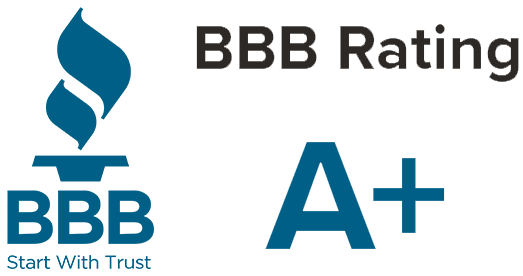CARES Act Tax Impact on GovCons
Rose Report: Issue 42

By Ted Rose, President and CEO, Rose Financial Solutions
Due to the pandemic and the subsequent economic impact, 2020 has been an unprecedented year filled with much uncertainty for businesses. Fortunately, on March 27, 2020, Congress responded by passing the Coronavirus Aid, Relief, and Economic Security Act (CARES Act), legislation geared towards helping small- to mid-size companies obtain the liquidity required to keep operations intact.
Taxability of forgiveness
If your company received relief from the CARES Act it is critical to review your tax strategy to ensure compliance. While many entrepreneurs believed that the amount of forgiveness would be tax free, the Internal Revenue Service (IRS) has always had the position that the forgiveness would be taxable. The taxability comes from a long held IRS position that any expenses that are reimbursed will not be deductible.
It’s critical that you examine the calculation of forgiveness from a financial reporting and tax perspective as soon as possible since forgiveness could result in unexpected taxable income in 2020. The IRS stated that the expenses that were reimbursed through the Paycheck Protection Program (PPP) loan will not be deductible in 2020. When you review your 2020 year-end tax plan, make sure it includes expected forgiveness and keep in mind that the accrued liability for Social Security may not be deductible for cash basis companies if not paid by December 31, 2020.
How you post payroll and labor distributions is critical. If you didn’t apply for a PPP loan you have the option to receive a Social Security credit for each employee on your payroll in 2020. This is a good alternative for companies that didn’t apply for PPP loans for various reasons. Conversely, companies that did apply for PPP loans could defer the payment of employer portion of Social Security. This deferred amount will need to be repaid—50% due on December 31, 2021 and 50% due on December 31, 2022.
Direct labor considerations for companies with cost reimbursable contracts
First we recommend against using direct labor on cost reimbursable contract to support forgiveness. The DoD has already stated that it will not reimburse for labor that is forgiven through the PPP forgiveness process. NASA has taken a different approach and is allowing contractors to build through a separate task order for ready to work charges. This was intended to be alternative to companies applying for the PPP. If you have contracts with other agencies, we recommend that you discuss this with your contracting officer to determine their preference. If direct labor is a limited option, we recommend utilizing the 24 week covered period to recapture more indirect labor, more indirect expenses, or direct labor for other contract types in your forgiveness application. If you do this, you must monitor the impact of your indirect rates as compared to your 2020 provisional rates.
Indirect labor and pool considerations
First, you need to estimate the impact of forgiveness on your indirect rates in 2020. If your actual rates are significantly lower after forgiveness, you should contact your contracting officer to adjust your rates going forward to minimize the year end adjustment vouchers. This is particularly important if you are a cash basis taxpayer and determine that you have a large overage.
Provisional rate considerations
Budgets and provisional rates need to be created for all GovCons, regardless of contract type. We recommend that you segregate forgiveness entries within the appropriate labor categories and pools, and when you create your 2020 provisional rates make sure you isolate the CARES Act activities from your 2020 actual results. This will help you explain the differences between actual results as compared to 2020 budgets and indirect rates. It will also allow you to justify the increase in rates for 2021 if applicable.
Families First Coronavirus Response Act (FFCRA)
FFCRA requires that companies provide paid time off to employees that become ill with COVID-19 or need to take care of a family member or child that is unable to attend school. It’s important to set up a charge code for this time so you can charge this expense against the Social Security tax deferrals and reduce that liability.
Please consult with your tax accountant about all of these issues as soon as possible. CARES Act implications are rapidly evolving, and this article represents the information that we have up to the date of the article being published.
About the Author
Ted Rose is President, CEO, and Founder of Rose Financial Solutions (RFS). Ted founded RFS 26 years ago and is a recognized pioneer in finance and accounting outsourcing and related accounting technologies. RFS is the leader in the next generation of FAO called Financeas a Service for Government Contractors. RFS’ GovCon FaaS encompasses the full range of GovCon/DCAA finance and accounting solutions including full lifecycle compliance for start-ups to $100 million GovCons. For more information please visit: rosefinancial.com.
Share this article:
Visit Us On:




